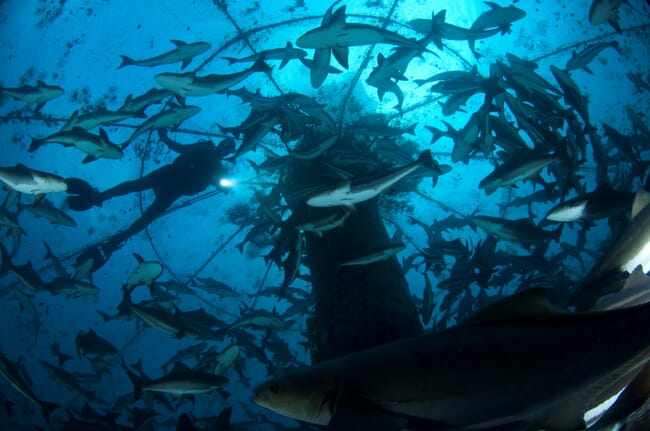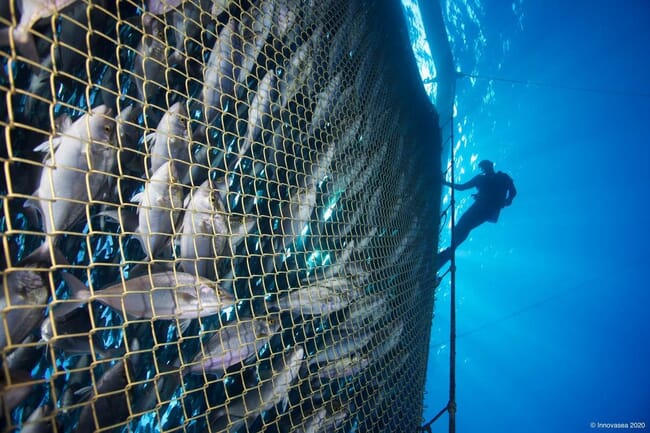
A team of authors with backgrounds in aquaculture production and industry regulation have published a new paper that refutes persistent myths and unfounded criticisms of marine aquaculture. The paper, published in Reviews in Fisheries Science and Aquaculture, shines a light on repeated – and in some cases unfounded – allegations of environmental degradation and poor animal welfare at offshore aquaculture facilities.
The authors argue that this drumbeat of criticism has undermined public support and left a, “variety of longstanding and inaccurate myths and assumptions directed at offshore aquaculture farming and its regulation.”
The open access paper counters the industry’s most prevalent critiques by reviewing current policies and regulations in the United States as well as sector production practices. Criticisms like lax regulatory oversight, concerns over high stocking densities for farmed fish, untreated discharge, use of antibiotic and antifungal treatments, entanglement of marine mammals in equipment are addressed. The authors also examine offshore aquaculture’s impacts on wild fish stocks and habitats, the use of feed additives to pigment fish flesh, unsustainable use of fish meal in feed formulations and the market disruption caused from cheap and low-quality fish. It also analyses the extent to which commercial aquaculture ventures and fisheries can coexist as for-profit businesses.
The authors stress that marine aquaculture is not risk-free – it comes with potential environment, economic social and cultural impacts. Aquaculture producers and governance bodies must take active steps to ensure that the industry meets its sustainability goals. However, the researchers argue that these challenges can be addressed within existing regulatory and scientific community.

Offshore aquaculture as part of the solution
The authors outline four key reasons for offshore farming’s probable upward trajectory in the United States. These include
- The global imperative to sustainably produce more seafood to meet growing global demand can be met by utilising the United States’ marine resources. This will allow the US to become a major aquaculture exporter instead of a net importer. This can be facilitated by amending US law to grant offshore farmers a property right or security of tenure for sites in federal waters.
- Since offshore aquaculture producers work within a complex and effective legal, regulatory and evidence-based environment, they can anticipate and mitigate many of the potential impacts of production.
- Farm-level management decisions and federal and state regulatory frameworks often work together to ensure that production and farm outcomes remain environmentally friendly.
- Aquaculture advocates in universities, governance bodies and the industry recognise the need to reach out to decision-makers and the wider public and aquaculture’s critics. By sharing the latest research and empirical results they can present an accurate picture of the risks and rewards for aquaculture development.
Read the full paper in Reviews in Fisheries Science and Aquaculture.




